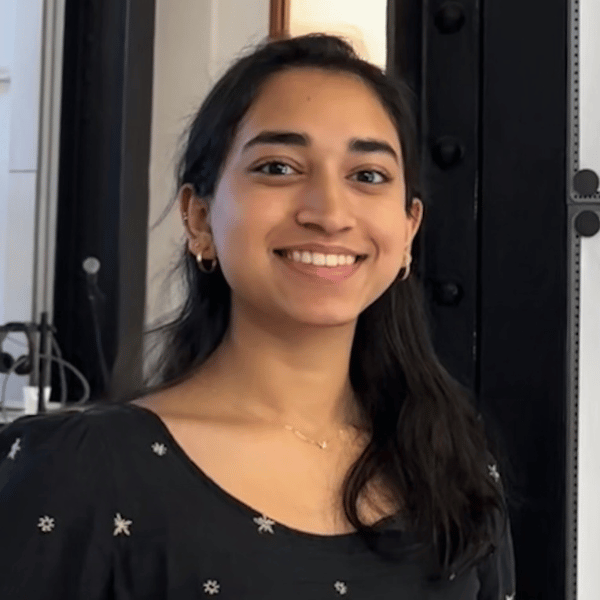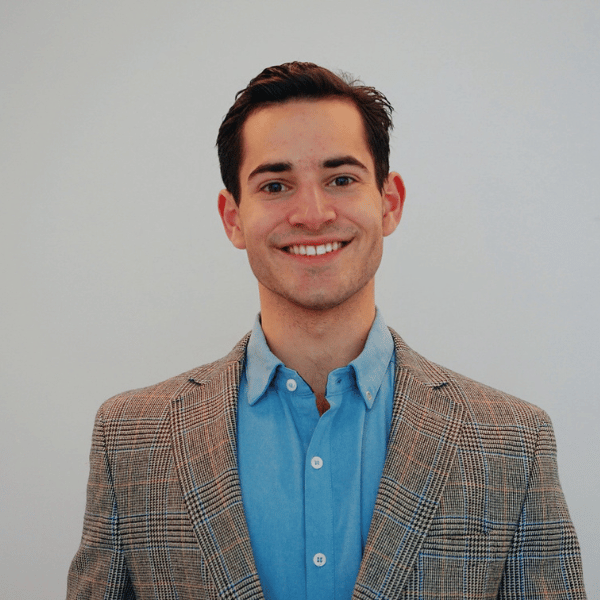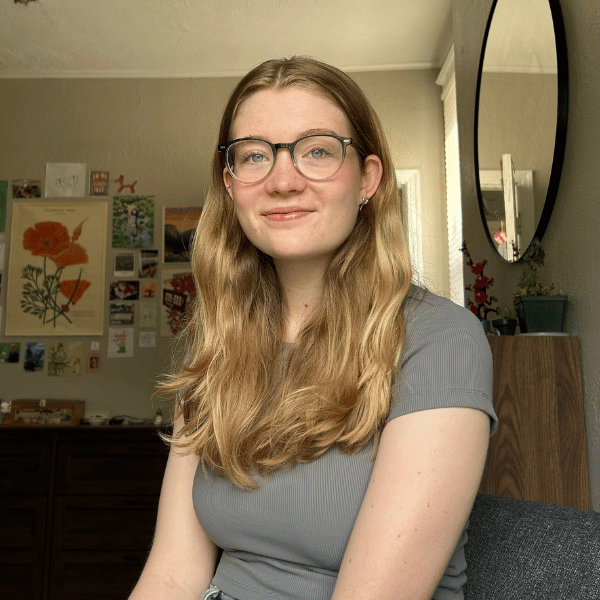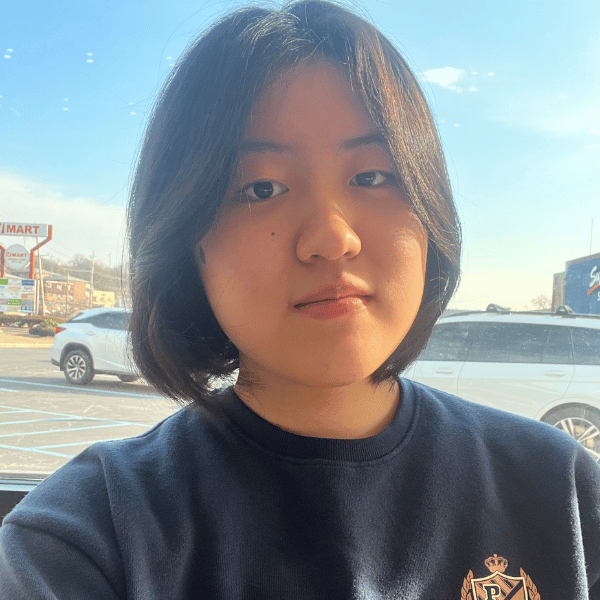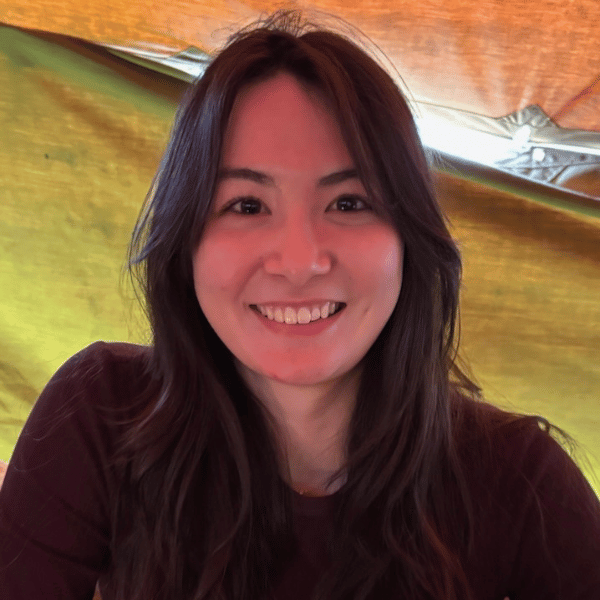
Issue 6 - Spring 2025
From the Editors
Dear WOVEN Readers,
Plutarch said that “education is not the filling of a pail, but the lighting of a fire.” As humanists and social scientists, we know that no fire is lit — no passion, no curiosity, no drive for progress or lifelong learning is ignited — without thoughtful inquiry, an act that feels more important than ever. In this, our sixth issue of WOVEN, students from courses across the Dietrich College General Education Program pick up that mantle of inquiry to interrogate themes of power and authority, memory and memorialization, cultural critique and interdisciplinary analysis.
These student authors and artists have leaned into complexity, rather than away from it. They model the kind of questioning, reflection, empathy and engagement that we need in higher ed and in the world, both within the classroom and beyond. In eight exemplary works here, students:
- analyze the role of memorialization— and counter-memorials— in shaping public memory;
- meditate on the intersection of photographic art, the power of visual storytelling and the politics of historical framing;
- design and propose a plan to strengthen local community partnerships;
- express the longing for liberty and freedom through song and video media about the Catalan independence movement;
- examine Shakespeare’s influence and evolution in India and its impact on Indian performing arts;
- use a feminist-materialist lens to explore the influence of power on cultural narratives;
- explore gender and historical documentation in Irish nationalism; and
- reflect on the work of visual artists to discuss selective storytelling in historical narratives.
We are proud to feature these dedicated students and are continually impressed by the thoughtfulness and rigor with which they approach these projects. WOVEN is a deeply important platform for our students and for all of us, and it is sustained by many.
We are immeasurably grateful to Colleen Libertz, our production manager, whose efforts bring each issue to life, to Dietrich College, the Department of English, and the Writing and Communication Program for their unwavering support of this journal and its editors, and to our faculty advisors who continue to nominate outstanding students and their work in our Dietrich College GenEd courses.
Alan Thomas Kohler & Courtney L. Novosat
Table of Contents
- "The Hidden Complexity of Memorials Related to the Kent State Shootings" — Anvika Vasireddy
- "Through the Lens: Confronting History and Memory in Xaviera Simmons' Sundown" — Andrew J. Salzman
- "Expanding CMU's FLEX dollar system to better support local community vendors and first-year students" — Juliette Brown
- "Dame Sol" — Davison Baldwin
Anvika Vasireddy
The Hidden Complexity of Memorials Related to the Kent State Shootings
GenEd Course Completed: 76-106 – Writing about Literature, Art and Culture
General Education Category: Communication
Faculty Advisor: Catherine Evans
What were the best parts of the GenEd course you completed?
One of the best parts of the GenEd course was our visit to CMU's archive collection. I really enjoyed the freedom we had to select a piece from the archive that genuinely interested us and to explore it in depth. This approach made the class feel dynamic and engaging, and it also meant that I found real enjoyment in writing the papers. The ability to connect personally with the material made the learning experience much more meaningful.
In what way do you see the experiences in this GenEd course contributing to your larger goals at CMU and beyond?
This GenEd course pushed me to think more critically about my responsibility as a student and the impact I can have before I graduate, particularly in terms of activism. Engaging with archival materials made me reflect on how history, research and storytelling shape societal change. As an architecture student, this experience reinforced the idea that design is not just about aesthetics or function but also about responding to social and cultural contexts. It encouraged me to consider how my work can contribute to broader conversations on equity and advocacy in the built environment.
Andrew J. Salzman
Through the Lens: Confronting History and Memory in Xaviera Simmon's Sundown
GenEd Course Completed: 79-314 – The Politics and Cultures of Memory
General Education Category: Contextual Thinking
Faculty Advisor: Emanuela Grama
In what way do you see the experiences in this GenEd course contributing to your larger goals at CMU and beyond?
The course changed how I think about the relationship between personal experience and collective narratives. I learned to dig deeper into how stories are constructed. By considering how different viewpoints are formed and remembered, this lens helps me approach problem-solving more thoughtfully at Carnegie Mellon and in my future endeavors.
How did the revision process and preparation for publication for WOVEN help you further develop your competencies in writing and communication?
The revision process for WOVEN helped me think more critically about how I present my ideas, especially when discussing more complex topics. Incorporating feedback pushed me to add vivid details, clarify my points and soften overly assertive statements while also being more mindful of tense usage.
Juliette Brown
Expanding CMU's FLEX dollar system to better support local community vendors and first-year students
GenEd Course Completed: 76-108 – Writing about Public Problems
General Education Category: Communication
Faculty Advisor: Jimmy Lazama
What were the best parts of the GenEd course you completed?
I really liked the structure of 76-108, where every homework assigned along the way was a piece to the final puzzle; a proposal providing a viable solution to a current public problem affecting CMU or its surrounding communities. Watching these pieces fall into place by the end of the semester demonstrated the value in each step of the process, making the final product all the more satisfying and making the course feel full-circle.
How did the revision process and preparation for publication for WOVEN help you further develop your competencies in writing and communication?
In preparing for publication, I was pushed to put myself in my reader’s shoes and to consider reorganizing certain sections or reword certain arguments with the recipient of my proposal in mind. I tend to write in a way that makes sense to me and assume the reader will follow my logic, but through revision, I realized the importance of clarity, structure and anticipating how others might interpret my work.

Read Davison's Artist Statement - English Language (pdf)
Davison Baldwin
Dame Sol
GenEd Course Completed: 82-345 – Using Spanish in Social Contexts
General Education Category: Intercultural and Global Inquiry
Faculty Advisor: Katharine Burns
In what way do you see the experiences in this GenEd course contributing to your larger goals at CMU and beyond?
Just as Spanish is a language, I view music as a language. Therefore by learning about the function of language in a society, I can draw correlations into the world of music. If the intention of language is to convey information then it seems the function of music may be to convey feeling. I think the information I learn both in and out of my classes creates nuggets of wealth that make up the mindset in which I view the world.
How did the revision process and preparation for publication for WOVEN help you further develop your competencies in writing and communication?
Oftentimes when I'm writing about a project I forget that the entity I'm presenting is wholly new to the viewer. The process of revision helped me to highlight the important aspects of my project and display my work in a concise and impactful manner.
Tiffany Chang
Emasculation and Erasure: Gender and Sexuality in Irish Nationalism
GenEd Course Completed: 79-255 – Modern Ireland: Politics and Culture from the Famin (1847) to Today
General Education Category: Humanities
Faculty Advisor: Aidan Beatty
What were the best parts of the GenEd course you completed?
My favorite part of the course was looking through primary documents! It's very easy to think of historical figures as about nebulous or distant, but reading through their personal commentaries helped ground my perspective.
In what way do you see the experiences in this GenEd course contributing to your larger goals at CMU and beyond?
One of the most valuable skills I learned in this course is to think critically and to look beyond surface-value arguments. As someone who hopes to enact change, I have realized that it is crucial to combat misinformation and misconceptions in order to convince people of that change.
Arrim Jung
Othello in India
GenEd Course Completed: 76-245 – Shakespeare: Tragedies and Histories
General Education Category: Contextual Thinking
Faculty Advisor: Stephen Wittek
What were the best parts of the GenEd course you completed?
I was really grateful for the class discussions further into the course when we had the knowledge to find connections between the Shakespearean works we read and able to talk more in depth about the implications of the art we were watching.
How did the revision process and preparation for publication for WOVEN help you further develop your competencies in writing and communication?
The revision process with WOVEN was incredibly exciting and rewarding processes, being able to see my writing with the purpose of showing it to the public rather than just a professor. The edits suggested to me through the WOVEN staff were always so mindful and helped me to make my writing more professional. Whether it was expounding on my claims to guide the reader through more rigorous thought processes, including images in my paper to enrich my writing, or considering the fragility with which we should treat words that have deep historical weight. I am very grateful to everyone on the WOVEN staff who I had the privilege of communicating with!
Cassie May
"We were always helpless, whoever was in power": Cultural Materialism in The Passion
GenEd Course Completed: 76-106 – Writing about Literature, Art and Culture
General Education Category: Communication
Faculty Advisor: Elizabeth Dieterich
What were the best parts of the GenEd course you completed?
Writing about Literature, Art and Culture was a great experience for me. It reignited my love for reading and helped me understand complex theories and symbolism better. I also gained more confidence in my ability to analyze texts. Most importantly, the course gave me the opportunity to think deeply about art and the connections between people, leaving me with valuable theoretical insights.
In what way do you see the experiences in this GenEd course contributing to your larger goals at CMU and beyond?
Writing a theoretical lens paper in 76-106 allowed me to explore diverse frameworks and concepts such as Marxism, cultural materialism and Jungism. The class not only broadened my knowledge but also expanded my perspective on different belief systems. These experiences are crucial for my goal of being open-minded and understanding towards all cultures and belief systems, preparing me to interact thoughtfully with a diverse range of people both now and in the future.
Samy Pemmasani
A Reflection on "Casting" (2022) by Dionne Lee
GenEd Course Completed: 79-314 – The Politics and Culture of Memory
General Education Category: Contextual Thinking
Faculty Advisor: Emanuela Grama
In what way do you see the experiences in this GenEd course contributing to your larger goals at CMU and beyond?
This course gave me a new way of thinking and has allowed me to see the world and what we know as "truths" in ways I didn't before. It has made me more inquisitive and curious, which will greatly enhance my education at CMU.
How did the revision process and preparation for publication for WOVEN help you further develop your competencies in writing and communication?
The revision process showed me how making historical connections in my writing can make it more impactful. Refining my piece with WOVEN and Dr. Novosat has given me a framework to refer to when editing and refining my works in the future.
